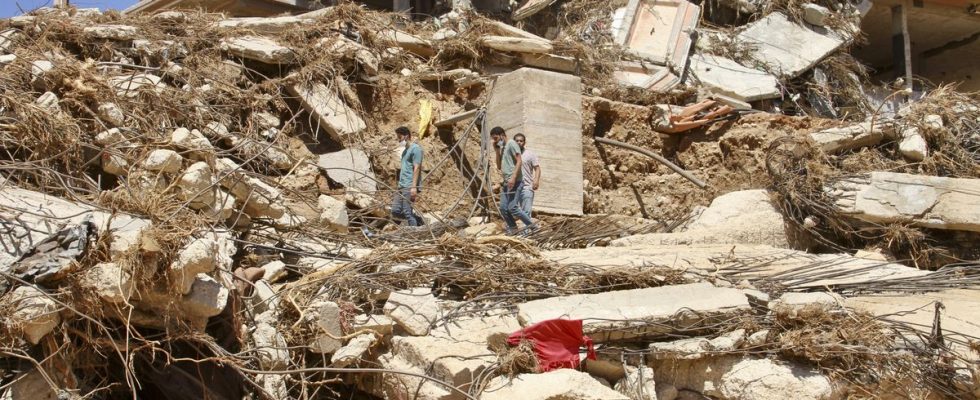Who is to blame after the tragedy? With the passage of a medic on the Libyan coast, torrential rains fell on the north of the country. The rising waters destroyed two dams, creating a flash flood of the magnitude of a tsunami, upstream of the town of Derna, where entire blocks of houses were swept away by the waters. More than 4,000 people died and thousands more were missing in the disaster.
According to Petteri Taalas, head of the World Meteorological Organization, the disorganization affecting Libya largely contributed to the scale of the disaster. With better coordination in this country ravaged by a serious political crisis, “they could have issued warnings and the emergency management services could have evacuated people, and we could have avoided most of the human losses”, declared Petteri Taalas during a press briefing in Geneva.
A curfew instead of evacuations
He stressed that the years of internal conflict ravaging the country have “largely destroyed the weather observation network”, as well as the computer systems. “The floods occurred and no evacuations took place because the appropriate early warning systems were not in place,” he said. If evacuations had taken place, the human toll would have been much lower, he added.
In fact, a curfew had been declared in several towns in the east of the country, including Derna, forcing residents to stay at home. “Of course, we cannot completely avoid economic losses, but we could also have minimized these losses by implementing appropriate services,” he said.
Libya’s National Meteorological Center (NMC) issued early warnings of severe weather conditions 72 hours in advance and informed government authorities by email, urging them to take preventive measures. A state of emergency was declared by authorities in eastern Libya on Friday and they set up a crisis unit. But according to the WMO regional office in Bahrain, the problem is that in Libya emergency management “no longer works” and there are “no means to manage such an unprecedented situation”.

